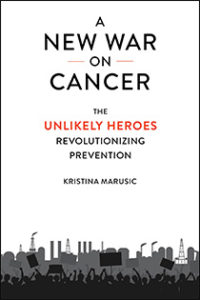
There has always been some concern about whether there are health effects from tattoos, especially ones that cover a large area of skin. Tattoo inks contain heavy metals, colors, nanoparticles, and all sorts of other chemicals, including carcinogens. A recent study conducted in Sweden found an increased risk of malignant lymphoma in persons with tattoos, specifically a 21% higher risk.
It has been known for years that tattoos cause chronic inflammation, and that nanoparticles from the inks travel throughout the body, including lymph nodes. It is thought that perhaps the low grade chronic inflammation from the tattoo is causing an increased risk for cancer in the lymphatic system, such as malignant lymphoma. Interestingly, in the study, the size of the tattoo did not increase the risk - it didn't seem to matter.
By the way, in this large study, 21% of individuals with malignant lymphoma had tattoos, but18% of persons who did not get malignant lymphoma also had tattoos. So... if you have a tattoo, it does not mean you'll definitely get lymphoma - it just increases the risk.
From Medical Xpress: Possible association between tattoos and lymphoma revealed
Our knowledge regarding the long-term health effects of tattoos is currently poor, and there is not a lot of research within this area. Now a research group at Lund University has investigated the association between tattoos and lymphoma. ...continue reading "Tattoos and Increased Risk of Cancer?"


 There may be new treatments on the horizon for the most aggressive and deadly brain cancer known as glioblastoma. The median survival is less than one year, so this is very exciting news.
There may be new treatments on the horizon for the most aggressive and deadly brain cancer known as glioblastoma. The median survival is less than one year, so this is very exciting news. Most Americans eat highly processed or ultra-processed foods every single day, with most of their daily calories from them! There are all sorts of health risks from these foods, with a recent study finding an overall increased risk of cancer, as well as prostate and breast cancer.
Most Americans eat highly processed or ultra-processed foods every single day, with most of their daily calories from them! There are all sorts of health risks from these foods, with a recent study finding an overall increased risk of cancer, as well as prostate and breast cancer. A recent
A recent  People don't realize the incredibly large amounts of pesticides applied to crops and soil in the US each year.
People don't realize the incredibly large amounts of pesticides applied to crops and soil in the US each year.  It has long been known that dogs get cancers, from similar chemical exposures as humans (e.g., lymphoma from exposure to weed-killer 2,4-D on lawns). A
It has long been known that dogs get cancers, from similar chemical exposures as humans (e.g., lymphoma from exposure to weed-killer 2,4-D on lawns). A  A recent large Swedish
A recent large Swedish  People worry about breast cancer and whether exposure to chemicals "in the environment" can lead to breast cancer. According to many studies the answer is: YES, absolutely - and this is why they are called carcinogens (a substance capable of causing cancer). What are the chemicals?
People worry about breast cancer and whether exposure to chemicals "in the environment" can lead to breast cancer. According to many studies the answer is: YES, absolutely - and this is why they are called carcinogens (a substance capable of causing cancer). What are the chemicals? Also, avoid using pesticides as much as possible, and instead use least toxic Integrated Pest Management (IPM) or organic methods, both inside the home and outside.
Also, avoid using pesticides as much as possible, and instead use least toxic Integrated Pest Management (IPM) or organic methods, both inside the home and outside. There is another very good book to read about environmental causes of cancer. It's called A New War On Cancer: The Unlikely Heroes Revolutionizing Prevention by Kristina Marusic. Published by Island Press in 2023.
There is another very good book to read about environmental causes of cancer. It's called A New War On Cancer: The Unlikely Heroes Revolutionizing Prevention by Kristina Marusic. Published by Island Press in 2023.